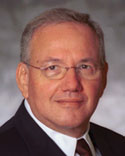
Wayne Mack

James Greenberg

Seth Goldberg
The United States' primary certifying body for osteopathic physicians is set to proceed to discovery in a fraud and antitrust suit in the District of New Jersey after a federal judge in Camden denied the association's motions to dismiss a suit by doctors.
The physician-plaintiffs who sued the American Osteopathic Association have sufficiently stated antitrust claims at the pleading stage stemming from the agency's alleged practice of tying board certification to association membership, U.S. District Judge Noel Hillman ruled Monday. The judge also ruled that the plaintiffs stated a viable claim under the New Jersey Consumer Fraud Act with their assertions about renewal fees imposed on doctors who had been promised their certifications would not expire.
Hillman also rejected the association's motion to transfer the case to the Northern District of Illinois, near the group's headquarters. The association did not argue that the District of New Jersey is an improper venue, but merely sought a transfer for its own convenience, he said.
The suit claims that 32,000 board-certified osteopathic physicians from around the country have no choice but to purchase the association's memberships, even though they cost significantly more than membership in other physician associations with similar benefits.
Hillman found that, at the pleading stage, plaintiffs have sufficiently stated claims for per se and "rule of reason" antitrust violations. The allegations, if accepted as true, show the association ties the purchases of two distinctive products, and that it affects a substantial amount of interstate commerce.
The judge rejected the association's argument that the plaintiffs' averment in the complaint, that many board-certified osteopathic physicians forgo purchasing memberships in other professional physician associations, is a bare-bones conclusion that does not meet the Twombly/Iqbal pleading standard.
"Even though at a later stage in the case plaintiffs must present evidence to support that contention, plaintiff's averment as pleaded is not a legal conclusion, but rather a statement of fact, which when accepted as true, supports their antitrust violation claims," Hillman said.
The suit was brought by three New Jersey physicians and one from Pennsylvania on behalf of a nationwide class of osteopathic physicians. The suit claims doctors were forced to purchase annual memberships, at $683 per year, in order to maintain their board certifications. Antitrust laws prohibit tying arrangements in which consumers who are interested in one product are forced to also purchase a second, the plaintiffs assert.
The lead attorney for the doctors, Wayne Mack of Duane Morris in Philadelphia, said in an email, "We are pleased with the Court's decision, and we are looking forward to moving the case forward on behalf of the 48,000 osteopathic physicians we believe have been paying inflated AOA dues for years as a result of the AOA's policy of tying membership in its association to AOA board certification.
"In an era of rising healthcare costs, this case is critically important to both doctors and their patients. The AOA has improperly increased the costs of doctors by tens of millions of dollars across the profession.There is no legitimate reason why a physician should also have to purchase an annual membership in the AOA and pay hundreds of dollars a year extra to the AOA in dues on top of the costs of certification," said Mack, who is joined on the case by the firm's Seth Goldberg and Jim Greenberg.
Reprinted with permission from New Jersey Law Journal, © ALM Media Properties LLC. All rights reserved.







